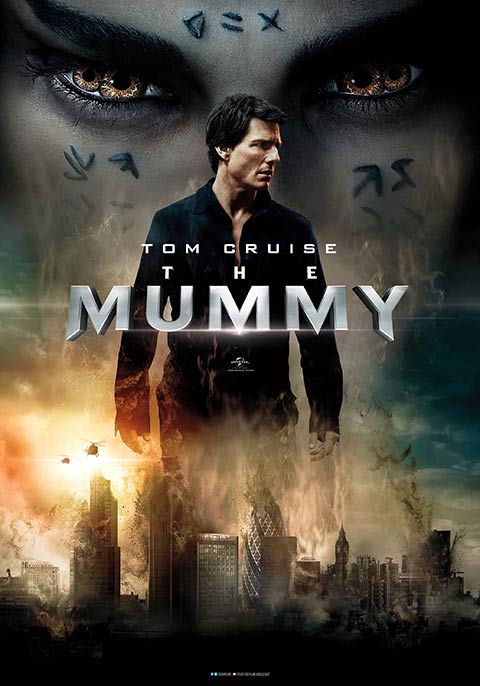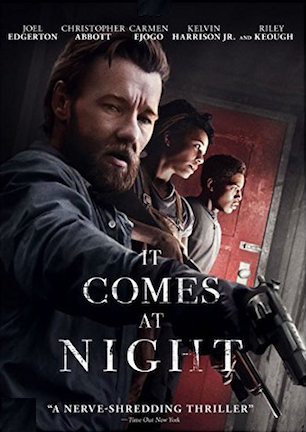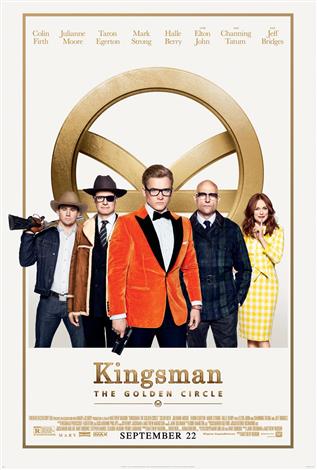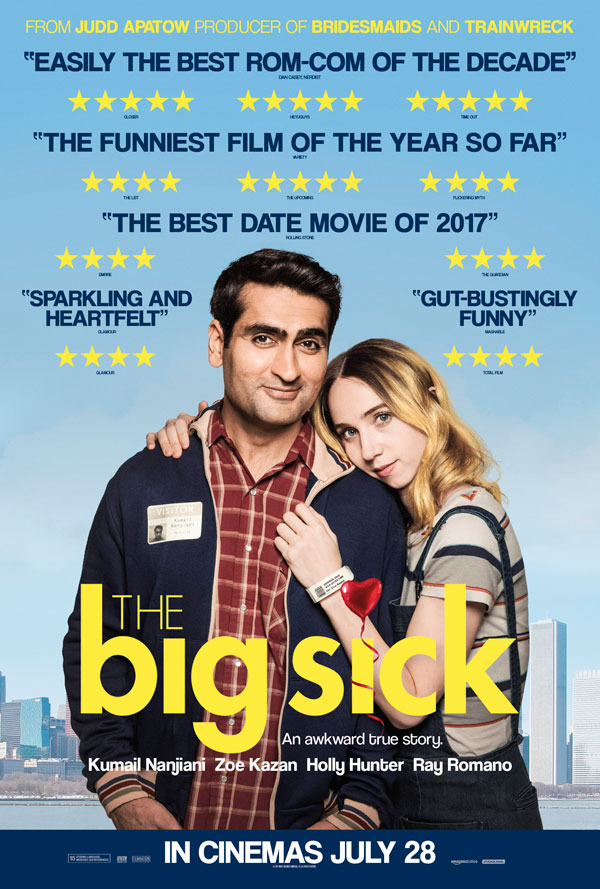
Ho ho ho.
Merry Christmas to all!
I hope everyone got the gifts they asked Santa for. I’m still waiting on my 20 porgs but I know Santa’s busy. I’m sure he’ll be here any minute now.
I’ll keep you posted.
Awww yeah, baby! It’s time for the Scriptshadow Worst of Best of 2017 List! Believe it or not, The Last Jedi is NOT my least favorite movie of the year. So I’ll keep you in suspense about that for awhile. Full Disclosure, I haven’t seen every movie of 2017 yet. I didn’t see Mother or Lady Bird. I haven’t seen the new Paul Thomas Anderson movie. Not Coco, Molly’s Game, or Call Me By Your Name, or The Florida Project. I suspect of those films, Molly’s Game and The Florida Project might have made my Top 10, and that Mother and the new Paul Thomas Anderson movie had a good chance of making my Worst Of (for those new to the site – I’ve always thought PTA was a terrible writer and that his last two movies prove that in spades).
As for bubble films, Get Out, whose script you all know I loved, didn’t transfer as well as I was hoping for. There was something I didn’t like about the actor playing the lead. But it’s still a solid movie. Colossal was a huge surprise for me. I really liked that movie and it almost made my Top 10. Logan was cool. Ingrid Goes West was a sliver away from making the cut. What killed that movie was the actor who played the brother. Worst performance of the year. Oh, but guys, check out that film for Ice Cube’s son’s performance. This guy is about to break out and become a superstar. He’s amazing. Blade Runner was Snore Runner. I tried so hard to get into War of the Planet of the Apes but it was just meh. The Beguiled started off strong then fell apart when they (major spoiler) chopped Colin Farrel’s leg off. Bitter much Sofia Coppola!? Have I forgotten anything?
Feel free to attack my sanity in the comments. But I’d also LOOOOOVE it if you guys suggested any great smaller movies that went under the radar this year. I’m always looking for the next hidden gem. Enjoy the list!
CARSON’S WORST MOVIES OF 2017

10) The House
Coincidence that two of my least favorite films of the year have casinos as a major plot point? Hmmmm…. I went on record as soon as this project was announced that it sounded like a dumb idea. Which was strange because the writers launched their careers with such a clever idea in Neighbors. When I finally read the script and saw that the first 40 pages were exposition, I knew the project was dunzoes. If you’re writing 40 pages of exposition into a comedy, you’re no longer writing a comedy. You’re writing an obituary.

9) Raw
This is that French film about… actually I have no idea what it’s about. I think chef college? A vegetarian in chef university? In typical French film fashion, the script seems to have been written by a 12 year old on shrooms. There’s no central narrative. No point. No goal. The director erroneously believes this makes the movie “daring” and “artistic.” No, it just makes it lame. The movie has some memorable visuals, such as characters smearing each other with paint in a paint orgy. But these high points get lost in a discombobulated plot of nothingness. Someone needs to introduce France to Scriptshadow.

8) The Lost City of Z
I am not a Lost City of Z hater. In fact, I read the book the movie is based on. What made the book great was this celebration of adventure and discovery. Some of the stories the author tells about treasure-hunting are wonderfully entertaining. What I didn’t know is that before movies came around, newspapers and magazines chronicled the adventures of real-life treasure hunters. Everyone was racing to the newspaper stand to find out what happened to [insert cool treasure hunter of the time]. They were the “movies” of that period and treasure hunters were the “movie stars.” Well director James Gray seems to have studied at the Rian Johnson School of “Suck all Joy Out of the Past,” turning the film into a dismal elongated meditative piece of crap. Everything about the main character, the side characters, and their missions, is dim, gray, and sad. Way to kill happiness.

7) The Dark Tower
One need only watch the first scene of The Dark Tower to know how bad it’s going to be. We’re in some maybe-future/maybe-past place. With children. And a tower. And a Harry Potter slash Hunger Games school. Before we have any understanding of this time or place or the characters, everything is destroyed by an outside force. One of the primary rules of storytelling is that you have to build the variables up before you tear them down – whether that’s in a scene, sequence, or the entire movie. Without any build-up, we feel nothing when the destruction comes. This is basic Screenwriting 101 stuff. If you can’t get that right, why would I believe you can handle an entire screenplay? Boy was I proven right.

6) The Mummy
I wish I could tell you what happened here. The original script for this movie was good. I swear it! I think once Tom Cruise got involved, nobody knew what to do. On the one hand, Tom Cruise didn’t work at all for what they were imagining. But do you really turn down the star power of Tom Cruise? It’s a little like if Tom Cruise asks you out. You have to go out with him. I mean, he’s Tom Cruise! But then you end up having to endure everything that comes with Tom Cruise. The whirlwind of his career, the media infatuation, his freaky religious views. The Mummy could never figure out if it was a Mummy film or a Tom Cruise film. I so wanted to enjoy this but it imploded quickly. Hash tag bring back Brandon Fraser.

5) Valerian
Poor Luc Besson. This one is hard for me. You’ve wanted to make a movie for 50 years. 50 years! And when you finally do, it’s not just bad. It’s horrible. This is why art is so frustrating. You’d think that having that much time to build something and think about something and write the backstories and the ideas and all of that – you’d come up with something incredible. Maybe this is an example of someone having so many ideas he got lost in the weeds. And then of course there’s the argument that Luc Besson is simply a bad writer. Fair. Whatever the case, everything with this movie was wrong. Worst casting of the year didn’t help matters.

4) It Comes at Night
It Comes at Night might have worked better if something had actually come at night.

3) Alien Covenant
The best thing about Alien Covenant is listening to post-film Ridley Scott’s interviews where he speaks about making eight more Alien movies. Dude, Ridley. It’s over, man. This movie was soooo bad. It was like the studio gave them 100 million dollars, they shot the first act, and then realized they only had 20 million left. So they cobbled together a single set and made a student-film where the main character, an android no less, made love to himself with a flute. Let’s be honest. This franchise died awhile ago. But can we finally say this is it? Oh wait. Disney just bought Fox. Never mind.

2) The Last Jedi
I’ve never seen a more selfish act by a film director in my life. Rian Johnson never had any intention of making a Star Wars movie. He only ever intended to make a Rian Johnson movie. Everything he does in this film is meant to serve his own interests. He never once considers the most faithful audience in the history of film. Listening to him defend his choices (In response to Luke throwing the lightsaber over his shoulder: “It was the only honest choice available.”) shows us just how limited his writing skill is. It’s funny. Two years ago I tried to warn everyone that Johnson was a terrible choice for a Star Wars film. But I just thought he was going to make a bad Star Wars movie. I had no idea he would destroy the most iconic hero in movie history in the process. (this movie is starting to implode at the box office btw – it’ll be interesting to see how Kathleen Kennedy spins it)
1) Beatriz At Dinner
How is it, you ask, that there’s a movie out there you actually hated more than The Last Jedi, Carson!? Welcome to Beatriz at Dinner. This is a movie that had a great setup. Great movies are about contrast, conflict, juxtaposition. Beatriz at Dinner had all of that. A poor Mexican masseuse-healer gets stuck at a rich client’s home for the night, which happens to be the night a Rupert Murdoch like figure is coming over for dinner. The movie starts off perfectly. I’m telling you. I was watching this and thinking, “Why isn’t this film being mentioned in the Oscar race? Why aren’t John Lithgow and Salma Hayek getting Oscar noms?” And then…. I can’t even tell you what happened. A brilliantly crafted screenplay turned into a giant pile of garbage. This film has one of the worst endings to the best beginnings that I’ve ever witnessed. I’ve never felt more betrayed and frustrated by a film.
CARSON’S FAVORITE MOVIES OF 2017

10) Wonder Woman
Gal Gadot is the greatest actress of our generation. Okay, maybe that’s pushing it. But she’s so damn charming. And Chris Pine is so damn charming also. And together they’re charming squared. They have the kind of chemistry you get once a year in Hollywood. Was the plot perfect? Nah. Was the villain perfect? Nah. But the setting was unique and the movie was fun, dammit. I love that this is only going to give us more Gal Gadot, starting with the number one script on this year’s Black List, Ruin.

9) Kingsman 2
You guys are probably looking at me and going, “I’m sorry-scuse-me-whaaaa?” I’ve never mentioned this franchise on the site before. But I just watched this film and holy bonkers! This is the craziest movie you will see all year. It’s absolutely NUTS! You have Julianne Moore grinding people up to make burgers. In a hidden Aztec enclave with a 50s movie theater and diner. I threw this on for background watching and it quickly turned into a marquee showing at the Casa de Carson. Loooovvvvved it!

8) The Disaster Artist
Over the last couple of weeks, I’ve been listening to a lot of James Franco interviews promoting this film. Here’s a fun fact. When Franco came to General Hospital and said he wanted to be on a season of their show, they moved planets to appease him. But scheduling was tough. Franco was filming a movie in New York at the time. So what they did was they flew Franco in every Friday after his movie shoot, and Franco would shoot ALL OF HIS GENERAL HOSPITAL SCENES for the next month in one day/night. He said that he would routinely shoot over 100 script pages A DAY. That’s an entire feature in a day, lol! Anyway, who better to direct and star in a movie about the worst movie ever made, and spend the production in character as the character he’s playing, than James Franco. I love everything about this movie, both the movie itself and all the stories surrounding it. Oh, and get this. The Room is finally getting a wide release! After 15 years, Tommy Wiseau’s dream is finally coming true!

7) Dunkirk
Dunkirk is the most bold studio release of the year. It tells its story out-of-order and with little dialogue, yet manages to be captivating throughout the majority of its running time. I went into this film grumbling about the setup, which didn’t seem that interesting for a war film (compared to, say, storming the beaches of Normandy). But the film taught me that the real war is often fought in between the big battles. And it captured one of World War 2’s biggest “in between moments” with some beautiful cinematography and sound design. The film I’d most recommend on this list seeing in the theater.

6) Donald Cried
One of the things I’ve become great at over the years is sniffing out all the movies that have a chance of being good. If I haven’t at least heard of it, chances are it’s terrible. I’d never heard of Donald Cried. And I only checked it out because of Itunes’ “Filmmakers to Watch” feature. This film probably has the best character of the year in it. Donald is like a grown up version of Napoleon Dynamite, but with more edge. The movie takes place when Donald’s childhood best friend, who’s now rich and successful, comes home for the weekend and gets stuck hanging out with Donald. If you’re into quirky dark humor, I DEFINITELY recommend this.

5) Spider-Man: Homecoming
Everything they did wrong in the previous Spider-Man films, they did right here. They brought a youthful enthusiasm back to the main character. They gave us a villain we actually liked for once in a Spider-Man movie. They flipped some of the characters on their head. They had some cool set-pieces, like the Washington Monument sequence. Oh, and let’s not forget that twist. Spider-Man is so back I wanna wrap myself in a peanut-butter flavored web and eat my way out. No idea what that means.

4) Thor: Ragnarok
If you would’ve told me at the beginning of the year that I’d have three super-hero movies in my Top 10, I’d tell you you were Girl Interrupted insane. I don’t know if that’s because I’ve finally come around to the genre or that there are so many comic book movies being released that I don’t have a choice. But this is another super hero film that I loved. You can probably spot a theme here. All of these super-hero movies on my list were fun, made you feel good, and honored their fan base. Probably the best thing to come out of this movie is the unlimited talent that is Taika Waititi. Taika proved that you can both bring your own vision to an established franchise and satisfy the fan base at the same time. Now come make a Star Wars movie, Taika! #Taika4Yoda

3) Columbus
You guys have heard me talk about this film already. If Thor: Ragnarok is non-stop thrills and action, Columbus is non-stop shots of buildings and quiet conversations. Sound boring? I suppose it could be to some. But if you love cinematography and minimalism, want to meet one of the best young actresses around, and escape for a couple of hours from the 24 hour bombardment of family/work/news/internet, Columbus is your film.

2) The Big Sick
I resisted The Big Sick for as long as I could. It was the only movie in my Top 10 list that I felt there was a good chance I’d hate. It just felt like another one of those, “Oh, my culture is different from your culture, yuk yuk yuk” romantic comedies. But it wasn’t that at all. The writer, Emily Gordon, cleverly switches the female lead out, replacing her with the parents, giving the story an unexpected jolt. They say that it’s impossible to replicate great films because every great film is lightning in a bottle. Well, they caught the 1.21 gigawatt version of a lightning bolt in this bottle. The movie doesn’t have a single flaw.

1) Good Time
I didn’t think filmmaking like this happened anymore. I thought it died in the 90s. But that kinetic risk-taking let’s push the boundaries style that brought us filmmakers like Quentin Tarantino and Danny Boyle is back with the Safdie Brothers. The hardest thing to do in any movie is to consistently surprise the audience, yet make every one of those surprises feel like they couldn’t have gone any other way. Good Time embodies that philosophy throughout. There are so many scenes in this movie that are better than all of the best scenes you’ve seen this year. The directing is great. The acting is great. The soundtrack is superb. I loved this movie so much! Go watch it!
Genre: Dark Comedy
Premise: An obsessive type-A student vows to secure the valedictorian title before school ends by any means necessary, even murder.
About: This script finished number 22 on this year’s Black List! The writer is a newbie, with just a single completed short film to his credit (as both writer and director).
Writer: Cosmo Carlson
Details: 112 pages

It’s time to take a break from The Last Jedi, even if the narrative following the film is juicier than an internship at TMZ. I just heard today that only a tiny group of people actually dislike The Last Jedi. That those people are a “vocal minority.” And that, actually, the large majority of people love it. It is inconceivable, according to the sites reporting this – the same sites that get invited to Star Wars premieres and get exclusive interviews – that a lot of people would dislike this Star Wars film.
I’ve come to realize that we won’t know if this movie is good or not for another couple of months, once the box office numbers are in. For reference, The Force Awakens had a 40% drop from Weekend 1 to Weekend 2 at this exact same time two years ago. So how big the drop is with The Last Jedi will be our first indication of whether people like this film.
In the meantime, I did a first page SHOWDOWN between Black List scripts, Valedictorian and Where I End, to determine which script I’d be reviewing today. Simple rules. Whoever has the best first page wins. Funnily enough, both scripts, despite being completely different genres, start with a guy approaching a girl. However, Valedictorian blew Where I End out of the water.
Why?
There was much more at stake with the opening of Valedictorian. A guy walks up to a girl in a high school and asks her to prom. The scene is sudden, intense, and the vibe is unique enough to keep the reader intrigued. It’s not your typical prom proposal.
Meanwhile, Where I End begins with a guy approaching a girl at a party and the two start talking in abstracts. One of them points out that we’re all just matter and that we should be able to pass through each other. Or something. Uh oh. Faux deep dialogue alert! My experience when I see dialogue like that right off the bat is that the script ends up being a mess. But I’ll give Where I End another shot since it’s ranked so high on the list. Today, however, we’ll go with Valedictorian.
18 year old Larry Fikus wants one thing and one thing only – to be valedictorian, brother. A little known fact is that all the greatest presidents were either valedictorian or salutatorian (2nd place – just learned that in this script!). Unfortunately, as the end of his senior year is upon him, Larry isn’t either. He’s in third place. And third place doesn’t even have a name.
Above him are Omar Sadaar, a nerdy Pakistani kid who wears his heart on his sleeve and doesn’t have a mean bone in his body. And Bridget Greene. Bridget is currently in first place and she’s a perfect little blonde nightmare. She’s a shoe-in for valedictorian, and to make matters worse, her mother is the damn principal.
Larry’s only got a couple of weeks left of school to leapfrog these two, and he starts by teaming up with Omar. He promises Omar the number 1 spot if Omar helps him take down Bridget. We know, of course, that Larry’s only using Omar and once he dispatches of Bridget, poor Omar will be next. But Omar doesn’t know that yet.
And the truth is, Larry may never get to that point. Bridget is a worthy opponent, surviving Larry planting a pound of weed in her locker. Surviving him sabotaging her scores in math class. She’s even resistant to his bribes and blackmails of all the teachers at the high school.
The elephant in the room is that it doesn’t matter what Larry does as long as Bridget’s principal mother is in the picture. Any dent in her grade, she fixes. Any surge in his grade, she retracts. This is going to be impossible. Unless, that is, he could get rid of Bridget completely. You can’t win valedictorian… if you’re dead.
I loved this script!
Larry is hilarious. Everything he does to get ahead is hilarious. One of my favorite sequences is him trying to score a perfect score on an oral Spanish test. Larry is terrible at Spanish. Luckily for him, the real Spanish teacher is sick this week so a substitute is in. And the substitute is blind. So Larry comes up a plan to recruit a Mexican student who can’t speak a lick of English, and tell him to go into the class and pretend he’s him, Larry, before taking the test. However, before he goes, Larry fears that the student speaks Spanish a little too well. So he sits him down and attempts to teach him how to speak Spanish more like an American, erasing the heavy accent and the rolling R’s. It’s a funny scene and a great representation of the humor in the script.
But the script is clever as well. The biggest challenge with a script like this is justifying why an audience would root for this hero. This is a selfish asshole who’s burning everything to the ground Rian Johnson style to achieve his goal. So what Carlson does is he makes Larry’s competition even worse. Bridget is a girl who cheats even more than Larry does. And she’s got this principal mother covering for her ass every step of the way, even going so far as to threaten teachers who give Bridget subpar scores. Of COURSE we want to see her go down.
The script itself is Scriptshadow plotted. We got the goal – Valedictorian! We got the stakes. Larry believes he will be president if he wins. We got the urgency. He’s only got a couple of weeks to pull this off. This is the perfect time frame I tell you guys to use. 2 weeks is the ideal time setup for a movie. Enough time to get us into these characters’ lives. But short enough to keep things moving!
The script also reminded me how ideal the high school setting is for a screenplay. Screenwriting is structure. You’re looking for form, for containers that you can use to hold stories in. The more boundaries you can establish around your story, the more structured it will be. Day-to-day life is wild and messy and you’ve got home and work and everything in between. When you’ve got a high school, everything’s structured out for you. We understand the rules of high school. And it allows you to play with the form.
It made me wonder why we don’t write more scripts in this setting. And I’m not talking about cheesy 80s high school films. Or even films like this one, which admittedly owes a lot to Election. But what about using this setting for other genres? You’ve got a thousand characters bouncing and banging off each other – conflict at every turn – stuck inside these walls, a clear time frame every day – 8-9 periods. There’s so much you can do here.
Anyway, I’m rambling. But I liked this. It was fun. And a nice detour from Canto Bight.
[ ] What the hell did I just read?
[ ] wasn’t for me
[xx] worth the read
[ ] impressive
[ ] genius
What I learned: I’ve noticed that high school has been severely under-represented in film recently. Most high school ideas have moved to television. This tells me that there may be a high school genre revival. Stay tuned.

Guys, I’m more exhausted than a one-legged bantha in a pod race.
These last couple of weeks of the year are going to be a whirlwind for me. I’ve got a lot of stuff to do. So I’m letting you know right now, updates will be sporadic. I do plan to put a new Black List script review up Wednesday. But who knows after that. Maybe I can astral-project a post or two. Then again, I’d be risking death. I’ll have to think about that.
Speaking of thinking, I’ve been thinking a lot about The Last Jedi. Whether you liked it or hated it, I love that it’s inspiring general audience screenwriting debate. Regular people talking about plot! Regular people talking about storytelling! That’s awesome.
And what I dig about Rian Johnson is he doesn’t shy away from the tough questions. When you ask him why he made the choice in regards to Rey’s parents, he tells you. Hell, he goes into specific detail about it.
In listening to Johnson discuss his two most polarizing story choices in The Last Jedi – Rey’s parents and killing Snoke – I noticed that he mentioned a very specific screenwriting maxim in determining those choices. That maxim was: “What choice in this moment results in the the most dramatically interesting result?”
This is a storytelling tool that’s been around for years and something most screenwriters learn in the late intermediate and early advanced stages of their training. The idea is this: when you’re posed with a big choice in your story, you should ask, “What choice can I make here that will have the most dramatic impact on the story/character?”
As a basic example, let’s say your hero is trying to decide if he should shoot the bad guy. Before you write this scene, you ask the question, what choice is going to have the most dramatic impact? If the bad guy says, “Go to hell,” there’s nothing dramatic about that. It actually makes the hero’s decision easier. However, if a woman walks up and our hero realizes it’s the bad guy’s innocent wife, that makes things more dramatically interesting because pulling the trigger now requires more variables to be processed.
So Johnson’s whole thing with Rey’s parents was, “What’s the most dramatically interesting thing Rey could hear?” He noted that Rey hearing she was a Skywalker had zero dramatic implications. And I would agree with him. Same thing with being a Kenobi. Nothing dramatic about that. But, Johnson argued, what if a girl who was so sure that her parents were important and were coming back for her one day, found out that they were nobodies and had sold her off for a few space tokens? That’s a much more dramatically compelling dilemma, Johnson argued, for Rey to wrestle with. I would agree with him on that as well.
Moving over to the Snoke scene. Same deal. What’s the most dramatically compelling thing that could happen in this scene, Johnson asked. If Snoke tosses these two around just to let them know who’s boss, the scene ends, and Snoke continues to rule the galaxy, that’s not very dramatically compelling. If Rey gets turned to the Dark Side, that’s more dramatically compelling than the first option but Johnson still felt it wasn’t enough. If he killed Snoke, however, now everything was up for grabs. And that uncertainty of who would take the reigns and how the new order would be established was the most dramatically compelling option of them all. Which is why he went with it.
So why are so many people divided over these choices? Johnson is following sound screenwriting advice. And the bold choices technically achieve what he set out for them to do.
Well here’s where Johnson gets it wrong. He forgot that there are two sides to every screenwriting choice. There’s the character you’re making the choice for. And then there’s the audience you’re forcing the choice upon. Johnson was so consumed with what would have the most dramatic impact on Rey and the First Order, he forgot to consider whether the audience would actually like these choices. And sometimes the most dramatically potent choice and what the audience wants to happen don’t line up.
Let’s go back to my earlier example with the hero deciding whether to kill the bad guy. Let’s say, in that moment, the hero decides, “Actually, if I kill this dude, he doesn’t even suffer. But if I shoot his wife in front of him, he’ll be in pain for the rest of his life.” Technically, that’s a more dramatically interesting choice. But is it the choice the audience wants? I would argue no. It’s barbaric and makes my hero unlikable. So clearly these two maxims don’t always line up.
And I’m not indicting Johnson alone on this. This is a mistake writers make all the time. We get so caught up in the world we’ve created that we forget that we’re actually creating it for somebody else. If you’re not including the audience in the process, there’s no reason for your script to ever leave your computer.
I don’t think anybody believes that Rey’s parents being nobodies was the best choice for Rey’s story. I know some people were okay with it. But the BEST choice? No way. There’s an answer in that question that could’ve been both dramatically interesting, like Johnson wanted, and crowd-pleasing, like the audience wanted. But Johnson was so focused on how this answer impacted Rey, he forgot to ask whether the audience would be excited by it.
And don’t get me wrong, it can go the other way too! Attack of the Clones was the most audience-service Star Wars film ever made. Not a single choice was made in that script with dramatic consequence in mind. It was only about “What does the audience want to see?” And that film is probably the least liked of all the Star Wars movies. So you can O.D. on either.
Which is why I endorse both. Like Johnson says, make choices that have the most dramatically compelling impact on the character/story. But don’t forget to consider whether the audience wants them to happen. Ultimately, you’re there to serve them. You’re not there to serve yourself. You’re not there to serve your characters. You’re there to serve the audience. Keep them happy and they’ll stay off your Twitter feed.
Just for fun, can you come up with choices to the two big moments I listed above (Rey’s parents and the Snoke Scene) that you believe would both have a ton of dramatic impact and that the fans would love?
Disregard this post. Once again, having trouble posting…


